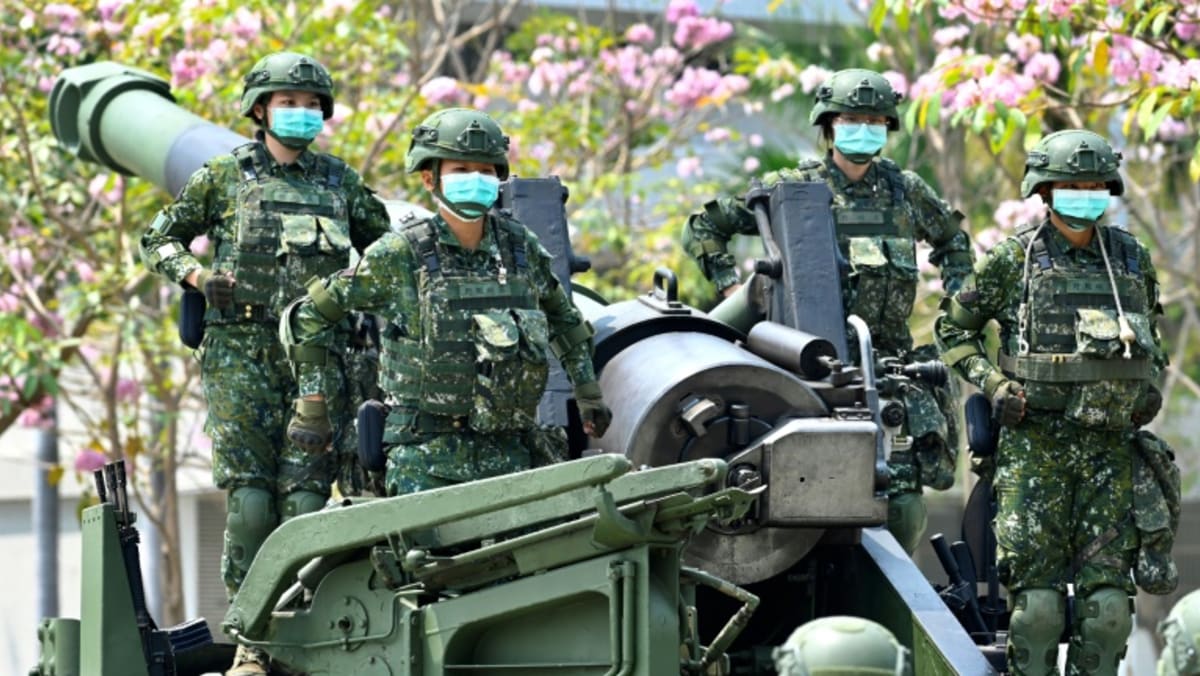
Conscripts will undergo more intense training, including shooting exercises, combat instruction used by US forces, and operating more powerful weapons including Stinger anti-aircraft missiles and anti-tank missiles, Tsai said.
Tsai's security team, including high-level officials from the defence ministry and the National Security Council, have been reviewing Taiwan's military system since 2020, an official briefed on the matter told Reuters.
"As long as Taiwan is strong enough, it will be the home of democracy and freedom all over the world, and it will not become a battlefield," Tsai told a news conference announcing the decision, which she described as "incredibly difficult".
The current military system, including training reservists, is inefficient and insufficient to cope with China's rising military threat, especially if it launched a rapid attack on the island, Tsai added.
"Taiwan wants to tell the world that between democracy and dictatorship, we firmly believe in democracy. Between war and peace, we insist on peace. Let us show the courage and determination to protect our homeland and defend democracy."
Taiwan has complained of delayed US arms deliveries this year, including of Stingers, but Tsai said the situation was improving after discussions with the United States.
The de facto US embassy in Taiwan welcomed the announcement on conscription reform.
"The United States' commitment to Taiwan and steps Taiwan takes to enhance its self-defence capabilities contribute to the maintenance of peace and stability across the Taiwan Strait and within the region," the American Institute in Taiwan said.
Mandatory service used to be deeply unpopular in Taiwan - once a brutal military dictatorship that has since morphed into a progressive democracy.
Its previous government had reduced compulsory military service from one year to four months with the aim of creating a mainly volunteer force.
But recent polling showed more than three-quarters of the Taiwanese public now believes that is too short.
The military has also struggled to recruit and retain full-time personnel because of low financial incentives.
Tsai described the extension as "an extremely difficult decision ... to ensure the democratic way of life for our future generations".
CHINA A 'MAJOR CONCERN'
Taiwan's government says only the Taiwanese people can decide their future.
"China's various unilateral behaviours have become a major concern for regional security," said an official who took part in the high-level security discussion.
Conscripts would be tasked with guarding key infrastructure, enabling regular forces to respond more swiftly in the event of any attempt by China to invade, the defence ministry said at the same press conference.
Chieh Chung, researcher at the National Policy Foundation, a Taipei-based think tank, estimated that the extension could add an extra 60,000 to 70,000 manpower annually to the current 165,000-strong professional force in 2027 and beyond.
Even after the extension, however, the period of service will still be shorter than the 18 months mandated in South Korea, which faces a hostile and nuclear-armed North Korea.
Tsai is overseeing a broad modernisation programme, championing the idea of "asymmetric warfare" to make the island's forces more mobile, agile and harder to attack.
https://news.google.com/__i/rss/rd/articles/CBMieGh0dHBzOi8vd3d3LmNoYW5uZWxuZXdzYXNpYS5jb20vYXNpYS90YWl3YW4tY29tcHVsc29yeS1taWxpdGFyeS1zZXJ2aWNlLWV4dGVuZGVkLW9uZS15ZWFyLWluY3JlYXNlZC10aHJlYXQtY2hpbmEtMzE2OTU1NtIBAA?oc=5
2022-12-27 08:35:00Z
1702217768
Tidak ada komentar:
Posting Komentar